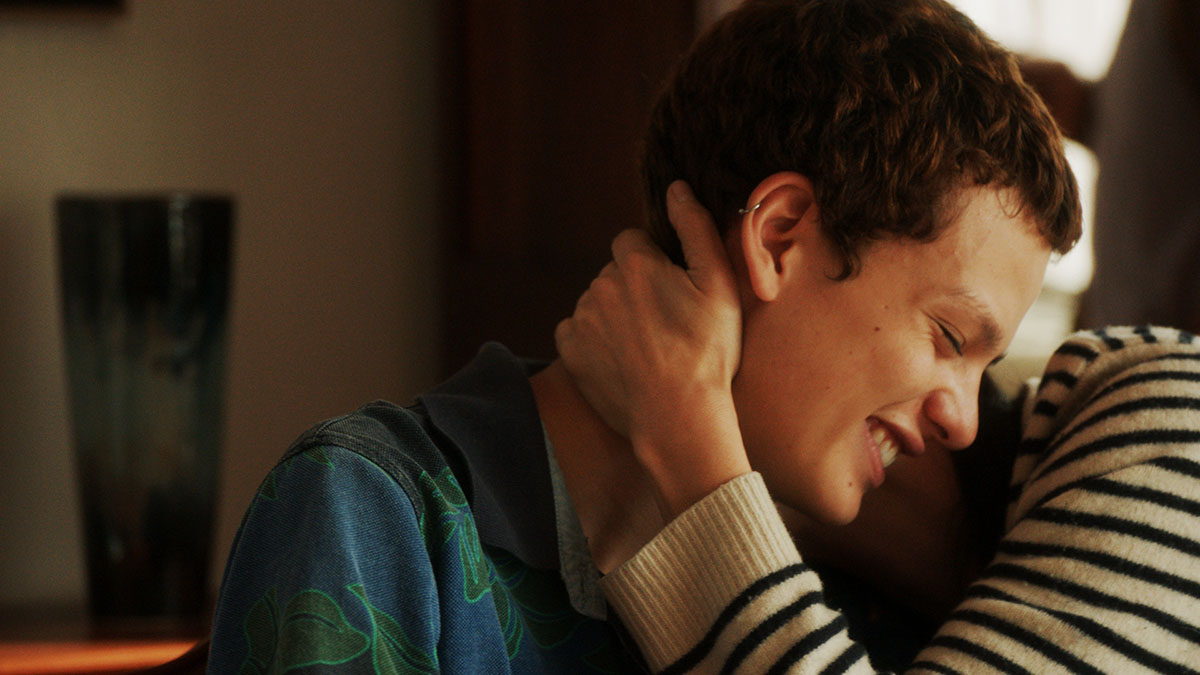The party ends in a second, as does Federico’s teenagehood and an era in his family. Simón, his older brother, just fell off of the terrace, dying instantaneously as he hit the floor. The following scenes are filled with torn cries of pain and anguish, but it could have also been a deafening silence: everything is broken now. This is the plot of the Colombian film El Otro Hijo (The Other Son), by Juan Sebastián Quebrada, a tragedy without a resolution that won the prizes of Best Movie by the Jury and Best Actor by Hollywood Reporter at the Alice Nella Città festival in Rome this year.
Federico starts to grieve by trying to go on with his life, restraining his feelings, and supporting his mom, Clara (Jenny Nava), whose world is falling apart. She is incapable of protecting him or giving him any kind of solace. Federico’s will to cling to life, his dreams, music, his friends, and the exploration of his sexuality is even more heroic as he is surrounded by adults crippled by pain.
As it so often happens, the forces of Eros and Thanatos go hand in hand, and Federico finds the ultimate reaffirmation by hooking up with his brother’s ex-girlfriend, even though it feels disloyal to him.
According to Juan Sebastián Quebrada, this betrayal isn’t unique to Federico’s case, and it doesn’t only occur through such a radical act as having sex with your dead brother’s ex-girlfriend. It is a necessary act of survival, as Quebrada well knows, being himself a surviving brother.
El Otro Hijo is a film without great cinematographic effects, plot twists, or fireworks: it is just the characters and a first-row seat to their pain. Quebrada succeeds in this choice because, as we would say in Colombia, “se le apareció la Virgen” when he cast Miguel González, the actor seamlessly playing Federico’s role.
González manages to convey an introverted character struggling to restrain his pain and find some joy. We see his pain, rage, and frustration as his family and dreams crumble, even as he parents his own mother tenderly.
While the performance of the supporting actors is vastly disparate (in most of the cases, for the worse), the chemistry between Federico and Clara, and between him and Laura (his brother’s ex, portrayed by Ilona Almansa) is believable and helps us understand better the conflict behind Federico’s severe and yet vulnerable demeanor.

We desperately need more stories like this one.
Colombia has already had a flood of series and movies about the armed conflict and drug trafficking. As necessary as it is to address these topics through art, sometimes it seems as if stories told outside of the context of Colombia’s harsh history are forbidden. As if we are not allowed to make films out of the most private, intimate concerns. It seems like the exploration of the psyche is for the Argentinean or the French.
Claiming our right (even our duty) to tell other stories is part of building a country that dares to imagine outside of the stereotypes that have been assigned to us: the narco, the guerrillero, Sofía Vergara, la salsa, Gabriel García Marquez’s magical realism. All those exist because they represent the real world but are not its totality. The armed conflict is a topic that we will never cease to explore – in the same way, Argentineans continue writing novels and making movies about the dictatorship. But to get to the point of overcoming the conflict, we need to be able to dream differently and feel other pains and joys.
What can happen with a society’s sensibility and imagination when we have more stories of boys holding their mothers as they cry? When we see on the big screen friends worrying about a teenager’s mental health? When a movie shows us that a man’s rigid demeanor can be a cry of pain?
I think a better Colombia, one that doesn’t forget its past but doesn’t get stuck there either.

